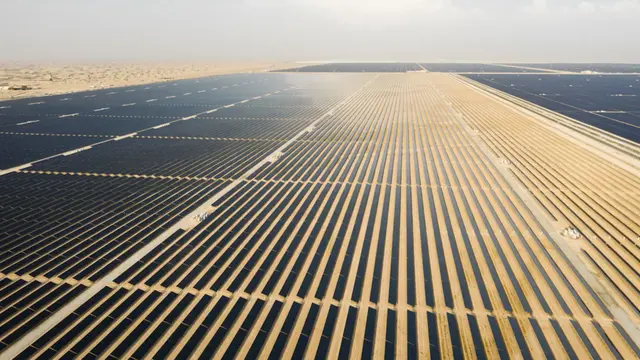- 17 former coal mining sites in Appalachia will be transformed into solar and battery storage hubs, generating 49 MW of solar energy and 320 MW of battery storage.
- The projects align with TNC’s “3Cs” framework—climate, conservation, and communities—and aim to boost local tax revenues and create jobs.
- Funding uncertainties under the Inflation Reduction Act (IRA) pose challenges, but local innovation and resilience continue to drive progress.
- The initiative builds on existing clean energy projects, with the first solar plant in Virginia set to begin construction in 2026.
- Appalachia’s transition from coal to clean energy highlights the region’s potential for sustainable development and economic revitalization.
A groundbreaking collaboration between The Nature Conservancy (TNC), its Cumberland Forest Limited Partnership, Sun Tribe Development, and ENGIE is set to breathe new life into 17 former coal mining sites across Appalachia. These sites, once symbols of the region’s industrial past, will be transformed into clean energy hubs featuring solar installations and battery storage facilities.
The initiative includes 14 solar energy projects with a combined capacity of 49 megawatts (MW) and three battery storage systems expected to hold 320 MW. Together, these projects will cover approximately 360 acres, providing clean energy to power around 6,638 homes annually in Virginia, Tennessee, and Kentucky.
A Focus on Climate, Conservation, and Communities
TNC is guiding the project using its “3Cs” framework—climate, conservation, and communities. The organization aims to ensure that these clean energy ventures not only reduce carbon emissions but also benefit local ecosystems and residents. The projects are expected to boost local tax revenues and create construction jobs, offering economic opportunities in a region historically tied to coal mining.
Danny Van Clief, CEO of Sun Tribe Development, emphasized the logic behind repurposing former coal mining sites for clean energy. “These sites and the communities they rest within have powered our country for more than a century—all we have to do is reimagine them for today’s energy technology,” he said.
Leveraging the Inflation Reduction Act (IRA)
The initiative is exploring incentives under the Inflation Reduction Act (IRA), signed into law by former President Joe Biden in 2022, to help minimize costs. However, the IRA’s future remains uncertain under the current administration. Former President Donald Trump attempted to freeze IRA funds shortly after taking office, and while a court ruling blocked this action, states report ongoing challenges in accessing funding.
A recent federal court order has mandated the administration to comply with the ruling, but the funding freeze has already impacted various clean energy and technology projects nationwide. Efforts to convert diesel school buses to electric, improve home weatherization, plug abandoned oil wells, and enhance resilience against natural disasters have all faced setbacks due to funding delays.
Local Innovation and Community Impact
Despite these challenges, Appalachian communities are demonstrating remarkable resilience and innovation. Dana Kuhnline, senior program director at ReImagine Appalachia, highlighted the region’s potential. “There is actually a tremendous amount of local energy and innovation because people love the place, and they stay here because they love it,” she explained.
Kuhnline noted that local stakeholders had a unique opportunity to leverage IRA and Bipartisan Infrastructure Law funding to drive significant community improvements. However, ongoing funding uncertainties have created obstacles for these efforts.
Expanding Clean Energy Efforts
The newly announced projects build on an existing slate of eight clean energy initiatives led by TNC, Sun Tribe, and Dominion Energy. The first of these projects, a solar plant in Virginia, is set to begin construction in 2026. This venture alone is expected to generate approximately $800,000 in local tax revenue while providing clean energy and rehabilitating a former coal mining site.
The remaining solar installations are slated for completion by 2029, further solidifying Appalachia’s transition from a coal-dependent past to a clean energy future.
Advocating for Climate and Conservation Policies
TNC has been vocal about the risks to climate policy and is committed to advocating for conservation and climate initiatives that benefit farmers, fishermen, and forest landowners. The organization emphasizes the importance of sharing success stories to demonstrate the tangible benefits of these policies.
A Brighter Future for Appalachia
This transformative initiative represents a significant step forward for Appalachia, turning abandoned coal mining sites into sources of renewable energy and economic opportunity. By repurposing these lands, the project not only addresses climate change but also honors the region’s legacy while paving the way for a sustainable future.


